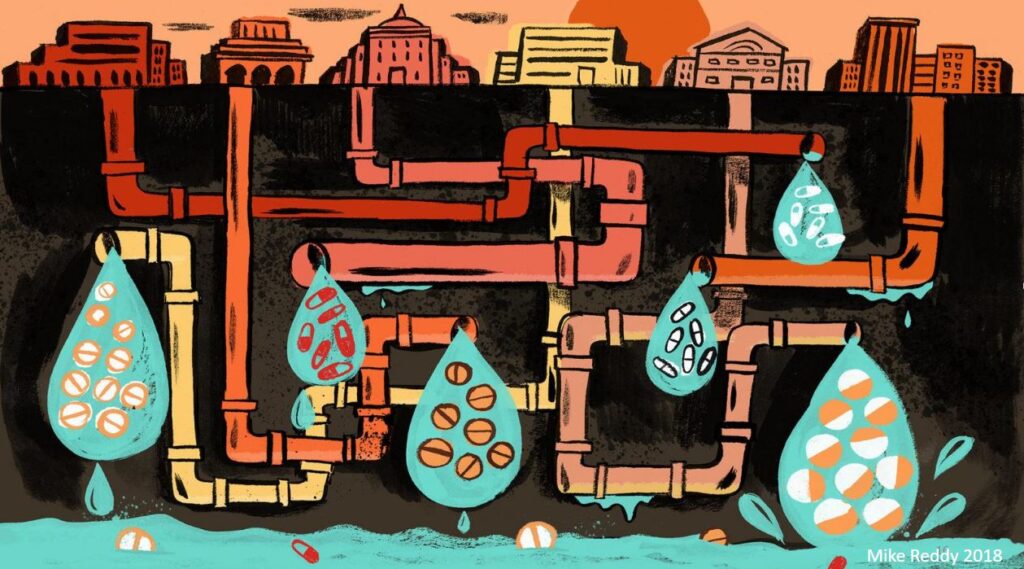The Royal Geographical Society with IBG Annual International Conference regularly attracts over 2,000 geographers worldwide. This year, the conference took place in London, and Dr. Prouse went there to present the research she has been conducting alongside Dr. Arefin: “Creating vital and valuable public health data from sewage: metabolism, waste, and governance in crisis.”

Creating vital and valuable public health data from sewage: metabolism, waste, and governance in crisis
With the outbreak of COVID-19, wastewater surveillance rapidly emerged and expanded globally as a non-invasive public health surveillance tool. In a moment of pandemic crisis, wastewater surveillance transformed the metabolic flows of bodily waste from contagious threats to densely populated cities into a vital and valuable reservoir of bioinformation. The emergent reconfiguration of metabolic relations between virus fragments, bodily waste, and sewage infrastructure is the focus of our paper. In this article we follow the metabolic flow of waste through bodies, infrastructure, and institutions to chart the variegated ecosystem of biotechnology firms that work closely with public entities to transform waste into data for public health governance. We draw on and contribute to literature in urban political ecology, urban studies, and discards studies concerned with questions of metabolic transformations, the waste/value dialectic, and the governance of waste. We ask: what are the emerging political economic actors, practices, and relations of wastewater surveillance? And how are emergent multi-institutional public-private partnerships and contracts transforming public health governance? We use mixed qualitative methods to trace the global wastewater surveillance field across North America, the Middle East, and South Asia. Using interviews, document and report reviews, financial reporting, and observation at conferences, we first categorize the emerging landscape of private firms. We identify the interfaces at which these companies partner with public entities in order to intervene and govern the metabolic flows of viral RNA fragments and waste through the city. We find that these emerging partnerships present concerning transformations in health governance creating new metabolic-political relations where profits displace public health needs, proprietary technologies blackbox public health decisions, and vulnerable populations are experimented on for prototyping technology. We end by considering what the political, economic, and ecological transformation of sewage might mean for the future of health infrastructure, governance and the study of urban metabolism.